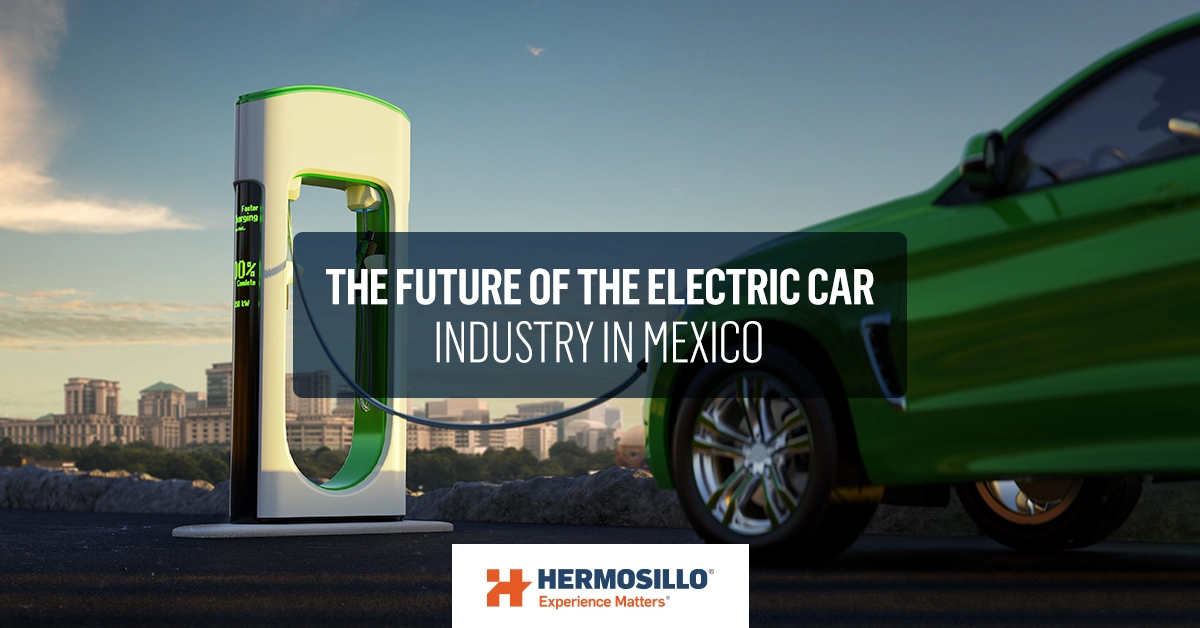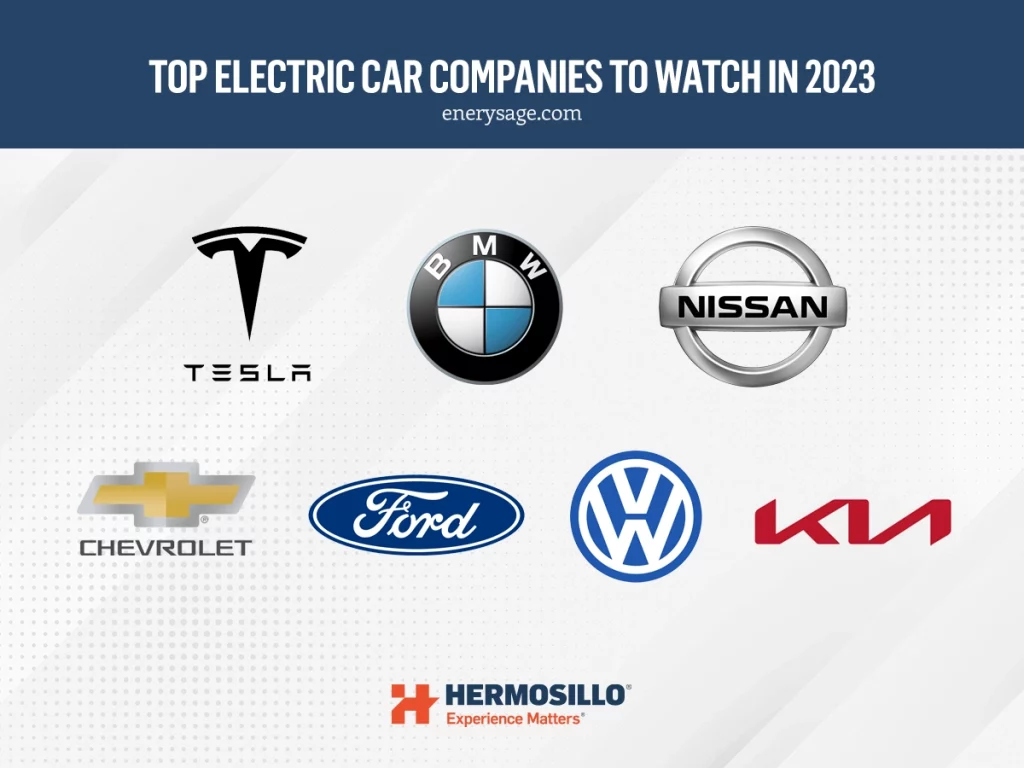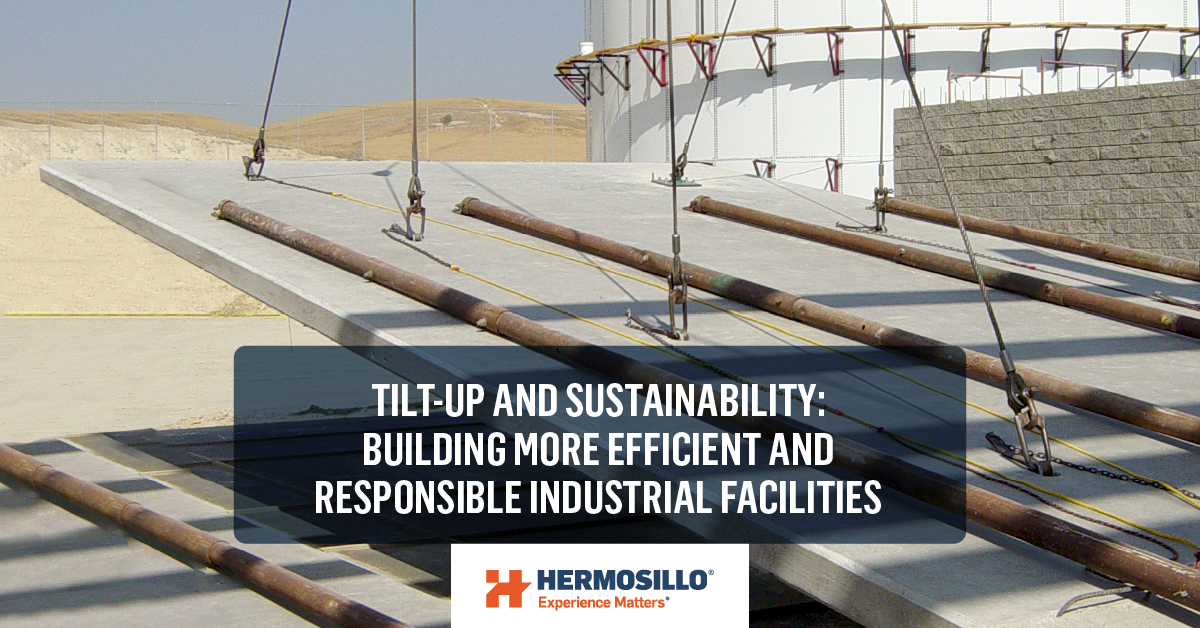
“We can’t put the future on pause,” the Ford Charmain said when asked about the sudden growth of electric vehicle (EV) manufacturers. The era of electric transportation is upon us, taking significant steps worldwide. From Europe and Asia to the United States, countries are implementing clean energy initiatives to reduce coal-related emissions and fossil-fueled combustion.
There’s a shift taking place, and Mexico can be part of it since it is the seventh-largest vehicle manufacturer globally. This blog post will cover the country’s current situation and investment opportunities related to electric vehicles growing demand.
The electric and hybrid-vehicle industry “boom” in Mexico
In 2022, Mexico manufactured 3,068,812 vehicles impulsed by electrical technology, of which 47,079 were sold within the country, representing 4.1% of the total car sales that year. The rest of the EVs were exported (95.9%).
The fact that only 4.1% of the total car sales of this type of automobile stayed in the country may seem minor; however, it was 61% more than in 2020. Moreover, Mexico was the top seller of EVs in Latin America, followed only by Brazil and Colombia.
The most popular electrified vehicles in Mexico are hybrids (which combine traditional combustion and electrical battery technology), but EVs are gaining popularity. According to the AMIA (Mexican Automotive Industry Association), in 2020, only 1.8% of the total registered electrified cars were 100% electric. In 2021 it was 2.4%, and in 2022 it jumped to 8.8%.
This edge is projected to keep expanding. According to INEGI (The National Institute of Statistics and Geography), by 2030, Mexico will be selling 72,655 electric vehicles nationally, 2,000% more than today.
This precedent showcases Mexico as one of the leading players in EV growth in LATAM. As a result, the country is ready to harvest external investments. Historically, our country has been proven profitable and safe for investors due to its workforce quality, value chain position, strategic location, and international alliances.

A worldwide shift toward green energy combustion
This shift happens because the new generations request tangible actions to protect the environment. Last year, 36.6bn tonnes of carbon emissions from fossil fuels were registered: a historical breaking record. Consequently, the UN has stated a goal to reduce carbon dioxide emissions by at least 45% by 2030 from the 2010 base level and reach net-zero emissions by 2050.
Countries all over the world are reacting. This is a global movement that is seeing its first steps in Mexico. Meanwhile, the UK aims to ban the sale of combustion-based vehicles by 2030. By the same year, Belgium will ban diesel-fueled cars and, by 2035, gasoline ones. Likewise, the United States, although less ambitious, will invest in building a national network of 500,000 EV charging stations, investing about 1.2 billion dollars by 2030. According to AlixPartners, a US-based consulting firm, the global auto industry plans to spend 526 billion dollars on electric vehicles through 2026. So, what does this mean to Mexico?
What is Mexico’s opportunity in this green revolution?
The answer can be summed up in manufacturing.
This worldwide automotive phenomenon means demand for electric parts will be at an all-time high. Currently, China has the lead, but Mexico could become a manufacturing force to reckon with. Here are some of the main reasons why:
1. Record sales in automotive parts
In 2019, automotive parts were worth $97.8 billion. Next year, Mexican auto parts production fell to $78.4 billion due to the pandemic. In 2021, it bounced back to $94.7 billion. Last year, Mexico broke its record by exceeding 101,000 million dollars in auto parts. This evolution is expected to continue. United States EV vision for 2030
2. United States EV vision for 2030
Along with the infrastructure development goals previously mentioned, the US government announced financial aid to anyone acquiring an EV. This precedent would cause a significant increment in demand that manufacturers must fulfill.
Also, the effect of this incentive will promote the ‘electrification’ of Mexico’s manufacturers. As a result, Mexico sees substantial opportunities in OE parts, aftermarkets, and electric vehicle parts.
3. Development has already started
In 2021, many multinational companies started upgrading their facilities to support electrical vehicle manufacturing. For example, Ford Mexico has begun the production of their Mustang Mach-E in their Cuautitlán facility in Mexico State. In addition, General Motors invested in their Ramos Arizpe, Coahuila plant for manufacturing batteries and started laying the ground to begin an assembly module of EV in 2023.
In the same way, Volkswagen has announced investments of over $7 million for the next five years, focused on producing zero-emission cars. They are expected to upgrade their Puebla and Silao manufacturing plants for EV components. Similarly, BMW will start manufacturing its electric SUV iX3 in its San Luis Potosí plant.
What are the specific requirements needed in EV Automotive Facilities?
Contractors must not be behind this trend. There are many particular components this type of facility requires to succeed. For example, these are our top three:
1. Battery manufacturing. Batteries in EVs are their most important component. Therefore, manufacturers seek innovative, adaptable manufacturing spaces, requiring specific safety considerations to handle batteries appropriately.
2. Flexibility. The need for flexibility and optimized working conditions while enabling an automotive manufacturer to change its factory layout, whenever necessary, quickly is vital to remaining competitive. Workforce safety and well-being are also critical in an automotive final assembly plant.
3. Assembly Sustainability. If you harm it, you can’t preach that you are producing transportation for the environment. Investors are looking for sustainable manufacturing plants. The facilities must be adequate to hold sustainable energy at any point. Likewise, building the facility MUST be sustainable, ensuring no waste or harm to the environment. LEED® certified projects are enhanced.
Wrapping Up
We can’t escape the future. As John Lawler, Ford’s Chief Financial Officer, mentioned their plans for EVs in 2023: “You have to invest now, or you’re left behind.” Nevertheless, nations are gearing up for a solid shift to cleaner energy and the massive use of EVs.
We can make the most of the situation and deliver accordingly. Mexico can become an EV top world manufacturer. By investing in Mexico, you are betting for the environment securely and profitably.
With all this in mind, based on our 60 years of experience, we can guarantee that Hermosillo is a reliable partner for your project in Mexico. In addition, the multiple successful design and build projects with global automotive manufacturers showcase our international business-oriented culture and local expertise.






